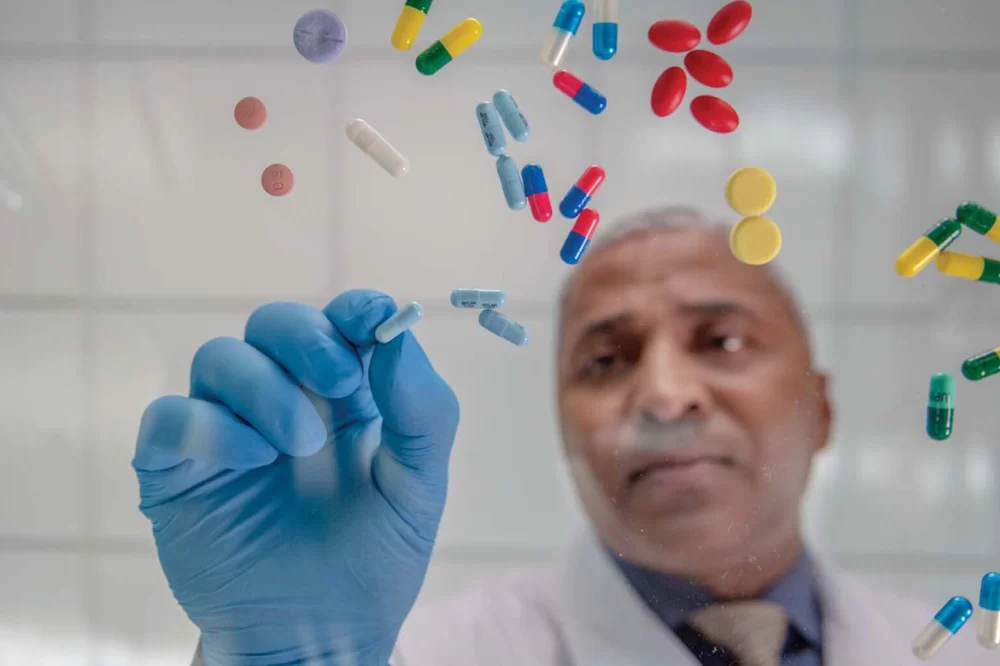
- 1. Understanding Drug Duplication and Its Risks
- 2. Importance of Clear Communication Between Doctors
- 3. Keeping Track of Your Medications
- 4. Using Technology to Prevent Drug Duplication
- 5. How Pharmacy Can Help You Manage Your Medications
1. Understanding Drug Duplication and Its Risks
Drug duplication occurs when multiple doctors prescribe the same medication to a patient, often without realizing that another physician has already prescribed it. This can happen for various reasons, such as poor communication between healthcare providers, lack of access to complete medical records, or misunderstanding of the patient's existing treatment plan.
Drug duplication can lead to serious health risks, including dangerous drug interactions, overdosing, and adverse side effects. For example, if two doctors prescribe the same blood pressure medication, the patient might unknowingly take too much, leading to a sudden drop in blood pressure, which can cause dizziness, fainting, or worse.
2. Importance of Clear Communication Between Doctors
One of the primary causes of drug duplication is a lack of communication between doctors. When patients visit multiple healthcare providers, there is often no centralized system for sharing information about their prescriptions. This can lead to situations where doctors unknowingly prescribe the same medication or fail to account for drugs that may interact with each other.
It is essential for patients to inform each of their doctors about the medications they are taking, including over-the-counter drugs and supplements. A simple conversation about your current prescriptions can help ensure that no duplicates are prescribed and that all your doctors are aware of your full treatment plan.
3. Keeping Track of Your Medications
To prevent drug duplication, it’s crucial for patients to maintain an up-to-date list of their medications. This can include the name of the drug, the dosage, the frequency of intake, and the prescribing doctor. Having a medication list on hand during doctor visits can help prevent confusion and ensure that each physician has a clear understanding of what the patient is already taking.
Patients can use a variety of tools to keep track of their medications, from traditional paper lists to mobile apps specifically designed for medication management. These apps often allow patients to input their medications, set reminders, and even share their lists with healthcare providers during appointments.
4. Using Technology to Prevent Drug Duplication
Advancements in technology have made it easier than ever to avoid drug duplication. Electronic health records (EHRs) are now used by many healthcare providers to store patient information, including medication history. By accessing a patient's EHR, doctors can quickly see what medications the patient is currently taking, reducing the likelihood of prescribing the same drug twice.
In addition, pharmacy software systems often have built-in alerts to notify pharmacists of potential drug duplications or harmful drug interactions. When patients fill prescriptions at a pharmacy, the pharmacist can check for duplicate medications, helping prevent errors before they reach the patient.
5. How Pharmacy Can Help You Manage Your Medications
Pharmacies play a key role in helping patients avoid drug duplication. Many pharmacies offer medication therapy management (MTM) services, where pharmacists review all of the patient's medications to ensure there are no overlaps or harmful interactions. This service is especially beneficial for patients who see multiple doctors or have complex medication regimens.
At Pharmacy, we are dedicated to helping you manage your medications safely. Our team of pharmacists is always available to assist with medication reviews, answer questions about your prescriptions, and offer advice on managing your treatments effectively. By working closely with your healthcare providers, we can help you avoid drug duplications and ensure that your medication regimen is as safe and effective as possible.














